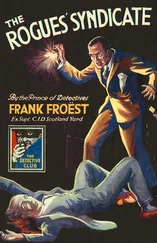The company became his life, his family and his fulfilment because it gave him something he'd never known before: the knowledge that he was better at something than everyone else, that he was in the lead. It was intoxicating yet agonising – a constant rush to stay ahead. Before long he was so preoccupied with his quest for the ultimate achievement that none of his successes pleased him. He simply rushed on, trying to overtake himself. To stop would have meant catching a glimpse of the scrawny boy with the oddly adult face, who'd been disregarded for too long to have any regard for himself. There was nothing Stone feared more than looking into his own dark, defiant eyes.
In recent years Statoil had set up a new division for the development of emergent technologies. Stone was quick to recognise the opportunities offered by a switch to fully automated plants. He presented the board with a range of proposals, and was entrusted with building a subsea processor designed by FMC Kongsberg, the renowned Norwegian firm. A number of sub-surface units were already in use elsewhere, but the Kongsberg prototype was an entirely new system, which promised enormous savings and would revolutionise offshore processing. The construction of the prototype took place with the knowledge and approval of the Norwegian government, although officially it never happened. Stone was aware that they'd put it into operation sooner than some people would have liked. Greenpeace, in particular, would have insisted on another set of tests, which would have taken months to complete. The distrust was understandable: on the scale of human and moral failure, the damage done by the petroleum industry was hard to exceed. No other business had the planet in such a stranglehold, with its web of vested interests. So the project stayed secret. Even when Kongsberg released a concept study on its website, the Statoil operation remained under wraps. A spectre was at work on the seabed, and the only reason it wasn't haunting its creators was because it functioned perfectly.
It would never have occurred to Stone to think otherwise. After endless tests he was convinced that they'd considered every risk. Why look further? It would only indulge the tendency towards indecision that Stone discerned and despised at the heart of the state-owned company. Besides, two factors made hesitation impossible. The first was the chance Stone saw to continue his technological trailblazing as a member of the board. The second was that the oil war was about to be lost by all parties. It wasn't a question of when the last drop of oil would flow but when extracting it ceased to make financial sense. An oilfield's typical yield obeyed the laws of physics. When a field was first drilled, oil shot out at high pressure and continued to do so for the next few decades. In time, the pressure decreased – the Earth held on to the oil in tiny pores by capillary pressure. Oil that had risen up of its own accord had to be pumped out at exorbitant cost. The yield fell rapidly, long before the reservoir was empty. It didn't matter how much oil was left: when extracting it consumed more energy than the oil itself could generate, it was better to leave it alone.
That was one of the reasons why energy experts at the end of the second millennium had got their predictions so badly wrong when they'd estimated that oil reserves would last for decades. Technically they were right: the Earth was drenched with oil. Yet most of it was inaccessible or the yield didn't justify the expense of extracting it.
At the beginning of the third millennium the dilemma provoked a ghoulish situation: OPEC, pronounced dead in the eighties, returned to life. Of course, it could do nothing to solve the real problem, but there was no doubt that it held the largest reserves. Determined not to let OPEC dictate the price of oil, the North Sea states had no choice but to lower the costs of extraction and colonise the seabed with automated plants. The ocean fought back with a brand new set of problems, starting with extremes of temperature and pressure. For whoever solved them, a second El Dorado beckoned. The riches wouldn't last forever, but in the meantime they would satisfy humanity's craving for oil and gas, and keep the industry alive.
Stone called in the experts, pushed the prototype through the test phase and recommended construction. Statoil acquiesced. Stone saw his budget and jurisdiction increase overnight. He cultivated his relationship with the suppliers, ensuring Statoil's needs always came first. He knew what a fine line he was treading. So long as no one had cause to criticise the company, he was Statoil's conquistador – but if it came to the crunch, he wouldn't stand a chance. The best employee was the easiest fall-guy. Stone knew he had to make it to the boardroom before anyone decided he was expendable. Once his name became synonymous with innovation and profit, doors would open and he'd be free to choose his path.
At least, that was how he'd imagined it.
He wasn't sure whom he felt angrier with – Skaugen, who'd betrayed him, or himself. But he'd known the score from the beginning, and the worst-case scenario had occurred. Everyone was dashing for shelter. Skaugen knew as well as he did that the catastrophic disintegration of the slope would soon be public news. None of them could afford to keep quiet without risking disgrace. By contacting the other companies, Statoil had set a process in motion that couldn't be stopped. Each firm was putting pressure on the next. With an environmental disaster looming, it was too late to strike a deal. All they could do was try to cover their own backs and find someone else to take the blame.
Stone seethed. Finn Skaugen was the biggest villain of them all – it had made Stone retch to see him play the good guy. His game was more treacherous than anything Stone, even in his darkest moments, could ever have devised. Of course Stone had overstepped his usual remit, but not without good reason. He was doing their bidding. He hadn't used half the power they'd given him. Of course he'd 'omitted' to mention those ridiculous reports. Since when had worms stopped ships taking to the water or oil being drilled? Every day thousands made their way through billions of planktonic organisms. If they stayed at home every time a new copepod was discovered, the oceans would be empty. And as for the hydrates – the amount of gas escaping was well within the normal limit. It was obvious what would have happened if he'd submitted the report. The bloody bureaucrats would have held up construction for no reason at all.
The system was to blame, Stone thought grimly, but most of all Skaugen, with his sickening brand of bigotry. All the directors, smiling and thumping him on the back; well done, old man, keep up the good work, just don't get caught, because we won't want to know. It wasn't his fault he was in this mess, it was theirs. And Tina Lund was just as bad, sucking up to Skaugen to take Stone's job and probably sleeping with the asshole too. Worst of all, he'd even had to pretend to be grateful to her for getting Skaugen to give him another chance. He was supposed to find the missing prototype. Some chance. It was a trap. They'd all turned against him, the whole bloody lot of them.
He'd show them, though. Clifford Stone wasn't finished yet. Whatever was wrong with the unit, he'd find the problem and sort it out. Then they could look for skeletons in the cupboard, and he, for one, had nothing to hide.
He'd get to the bottom of it.
The Thorvaldson had scanned the site of the unit with multibeam sonar, but there was still no sign of the processor. The morphology of the seabed seemed to have changed. Within a few days the site of the unit had become a gaping chasm. The thought of the depths made Stone as queasy as the next man, but he pushed aside his fears. All he could think of was his voyage to the seabed and how he'd show them what he was made of.
Читать дальше












